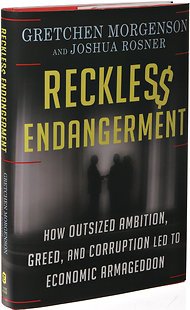As appealing as that notion may be to some buyers, it is ex post facto legislation that violates the Colorado Constitution.
House Bill 1338 by Rep. Jack Pommer, D-Boulder, is the latest skirmish in a long struggle between lawyer Scott Sullan and Colorado homebuilders - a duel that bids fair to rival the Hundred Years War in duration, though thankfully not in body count.
Sullan's success in representing homeowners with defective houses prompted builders to lobby for House Bill 1161 in 2003 to put a cap on damages in such cases. Sullan responded with Amendment 34 on the 2004 ballot to expand the rights of homebuyers. Voters defeated that amendment.
Now Sullan is back with HB 1338, a bill that would strike down as "unconscionable" any clause in a homebuyer's contract that purports to waive any rights granted under the prior HB 1161. So far, so good - most lawyers believe such waivers won't stand up in court anyway.
Unfortunately, HB 1338 goes much further by also voiding existing language that replaces "implied" warranties with "express" warranties. To hear the sponsors tell it, there is something evil about swapping the vague general rights conveyed in implied warranties for the explicit language in express warranties. But virtually every warranty in every business makes just such a trade.
Implied warranties, by definition, aren't explicit guarantees. They have simply evolved over time through court decisions. In the case of homebuilders, they basically require sellers to meet standards of good workmanship, habitability and compliance with local building codes.
The problem with such general rules is applying them to your specific house. Does a half-inch crack in your basement mean your house is not "habitable"? Only the jury knows. That's why a good express warranty says harmless hairline cracks aren't covered, but any crack wider than, say, a quarter-inch must be repaired by the builder.
HB 1338 would preserve all such specific guarantees but also would restore the vague general rights normally signed away in favor of those specific rules. That would give homebuyers - years after the fact - two bites at the legal apple. It also would violate Section 11, Article II of the Colorado Constitution, which says: "No ex post facto law, nor law impairing the obligation of contracts, or retrospective in its operation & shall be passed by the General Assembly."
Instead of unconstitutionally rewriting existing contracts, lawmakers should make sure that any new warranties written for homebuyers specify clear and enforceable rights to protect what for most citizens is the biggest investment they will ever make. http://www.denverpost.com/opinion/ci_5528002





